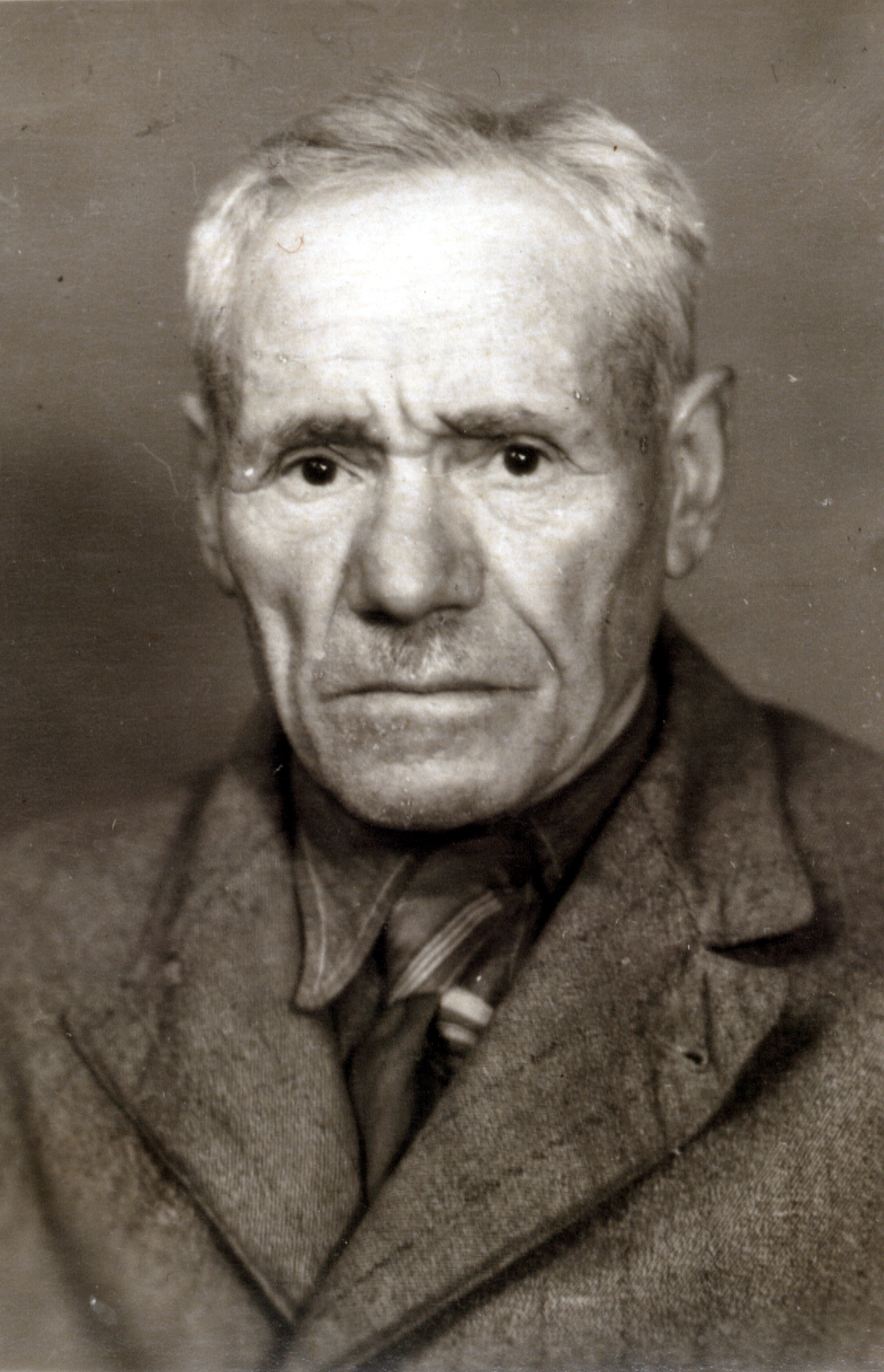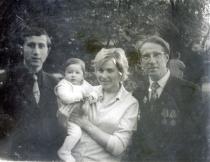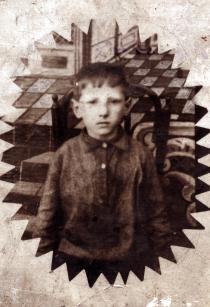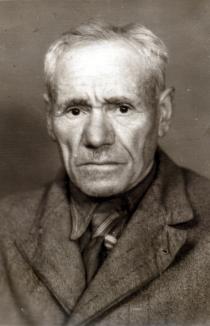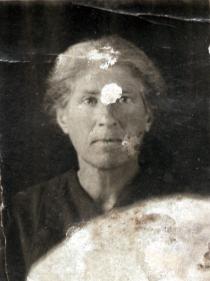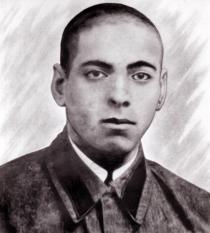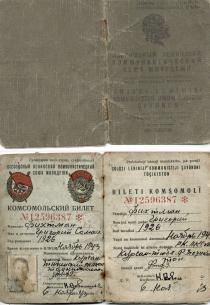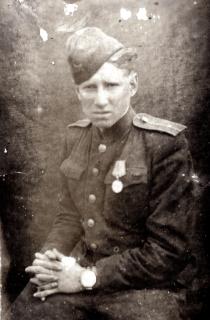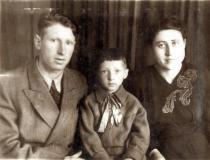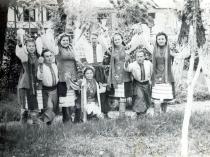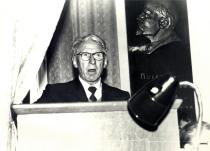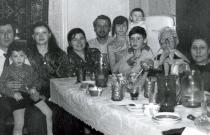This is my father Samuel Fihtman. This photo was taken in Zhmerinka in 1940.
My father , one of the younger children, was born in Yampol in 1883. I cannot say where he studied besides cheder. He could speak fluent Russian and read in it well. In 1896, at the age of 13 my father went to work in Odessa. There were some distant relatives living in Odessa. I don't know anything about them. They helped my father to find a job. My father worked as designer for an owner of a fashionable women's clothes store in Deribassovskaya Street. According to what my father said this was a big and rich store: there was a big choice of French perfumery and haberdashery from all over Europe. My father designed shop windows. He liked his job and his master valued him high. He even sent him to polish his skills in Kiev.
In 1921, during the period of horrible famine, my parents moved to Zhmerinka. They stayed in Zhmerinka for twenty years. My father never joined the Party. He was an ordinary worker. He had different jobs trying to provide for his family. He worked at the railroad and a sawmill. Like many others he was interested in politics. He liked to read 'Izvestiya' [Izvestiya - News, daily communist newspaper published in Moscow], and he also subscribed to the 'Der emes' (Truth) in Yiddish. There was a time when this newspaper was issued and its articles were translated from the Pravda newspaper ['Truth', the main paper of the Communist Party of the USSR].
My parents weren't fanatically religious, but they always celebrated Jewish holidays. They went to the synagogue on holidays. My mother only used special crockery at Pesach. We didn't have anything non-kosher at home through 8 days of Pesach. We dressed up on holidays. My mother made matzah pudding, very delicious. The table was set according to the rules: something bitter, matzah and everybody had their own wine glasses. I don't remember any details, though. I can still see my little blue cup with 'Pesach' engraved on it. I remember well that there was the first night and the second night. My father recited the prayer and told me a little about the history of this holiday. He said it was necessary to drink four glasses of wine, but we only sipped wine from our glasses. There were no guests; everybody celebrated with their own families. I also remember that my mother treated the Studzinskiy family to her Pesach dishes. Katia also brought us Easter bread and painted eggs on Catholic Easter. We also celebrated Rosh Hashanah and Yom Kippur. My mother and father fasted. I began to fast when I studied in the 6th or 7th grade. We also lit candles at Chanukkah: another candle each day, 8 candles in total. I liked playing with a whipping top. I also received Chanukkah gelt of few kopecks. I don't remember much of Purim, but I remember that my mother baked hamantashen and told me why they had to be this shape.
During Great Patriotic war my father lived in evacuation in Krasnoyarsk region and Kurgan-Tubeh town [Tajikistan]. In 1946 my father and I returned to Zhmerinka. He met an aging Jewish woman named Lisa. Her husband perished at the front. They began to live together. Shortly afterward Lisa's brother living in Alchevsk Donetsk region took them to his town and rented an apartment from nice people for them. My father lived with Lisa the last seven years of his life in Alchevsk. I visited him once. When my son Alexandr was ten years old I went to see my father. My second visit to Alchevsk was when I came to my father's funeral in 1959. There was a civil funeral and my father was buried in the Jewish cemetery. I never went there again.
